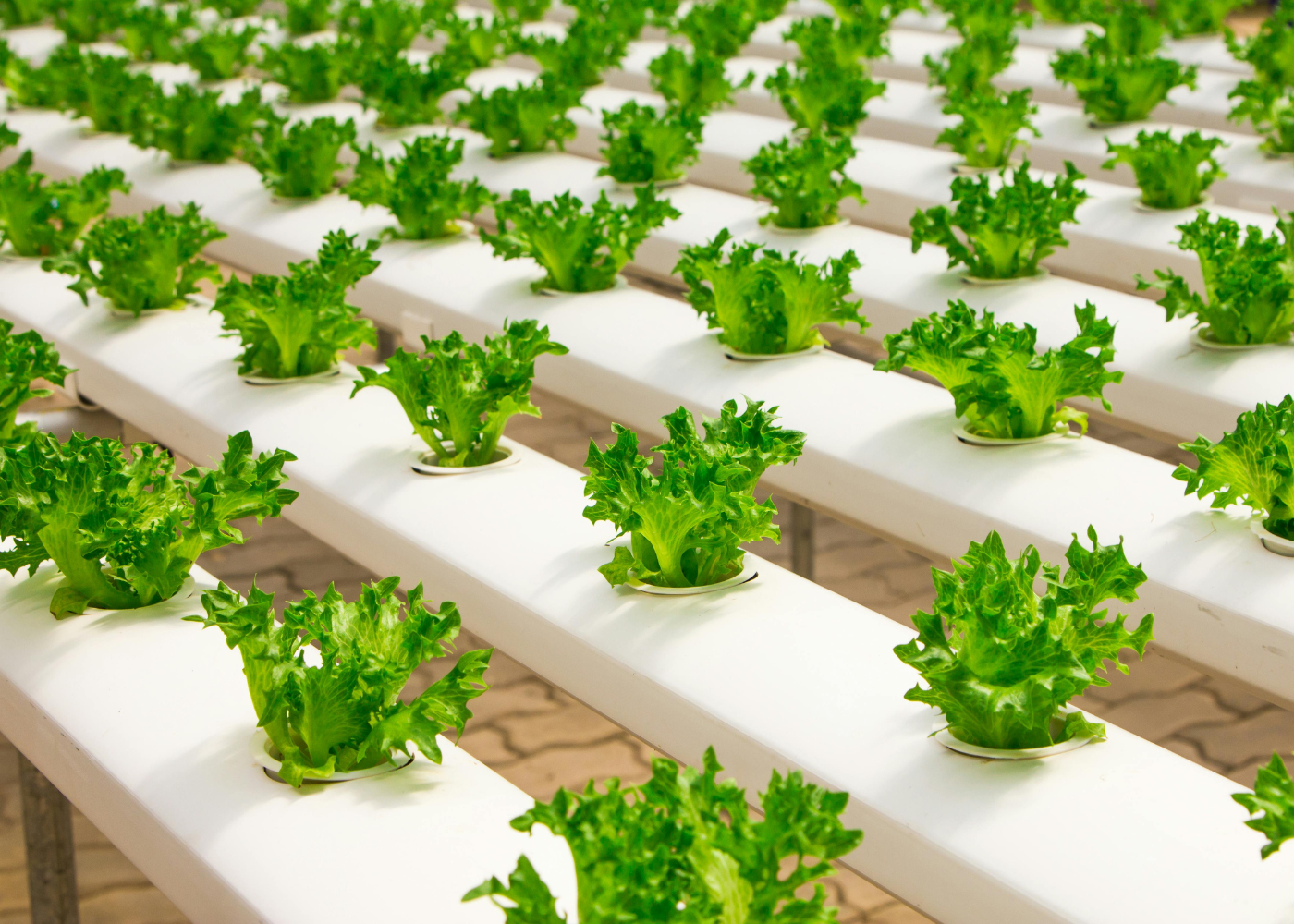Water is our most precious resource - and we often waste it without thinking about it. Agriculture in particular is a major consumer: around 70% of the fresh water extracted worldwide is used here. But did you know that there are methods to drastically reduce water consumption? One of them is hydroponics, an innovative process that not only protects the environment, but also gives you the opportunity to grow fresh vegetables right at home - with up to 95% less water. In this article, we explain how hydroponics works and how you can benefit from it.
What is Hydroponics? – A Revolution in Vegetable Cultivation
Hydroponics is a method of cultivation in which plants grow in a nutrient-rich water solution rather than in soil. A special substrate, such as coconut fiber or rock wool, is used to stabilize the roots. The nutrients that plants normally absorb from the soil are added directly to the water, which is continuously circulating.
The highlight:
Hydroponics supplies plants with exactly the amount of water and nutrients they need – no more, no less. This means that water resources are used efficiently.

How does hydroponics save water?
In traditional agriculture, large amounts of water are lost through evaporation, seepage and inefficient irrigation. Hydroponics eliminates these problems:
1st No water loss through seepage:
The closed system keeps the water moving. What the plants don't absorb is returned and reused.
2nd Less evaporation:
In hydroponic systems, the water is optimally protected so that hardly any evaporation occurs – unlike with conventional irrigation methods.
3. Targeted care:
The roots of the plants get exactly the amount of water they need. There is no excess that is wasted.
Result: Up to 95% less water consumption compared to conventional agriculture!

Why is this important? – The global water crisis
Climate change and the growing world population are putting increasing pressure on our water resources. Many regions already suffer from water scarcity, and this problem will worsen in the coming decades. According to the United Nations, around 1.8 billion people could live in regions with absolute water scarcity by 2025.
In numbers:
• In conventional agriculture, 1 kilogram of tomatoes requires up to 180 liters of water.
• With hydroponics it is only about 9 liters.
Switching to water-efficient farming methods such as hydroponics is therefore an important step in tackling the global water crisis.
The Benefits of Hydroponics for You and the Environment
Hydroponics not only offers benefits for the environment, but also for you as a hobby gardener or vegetable fan:
1st Resource-saving:
You save water and nutrients because everything is recycled in the closed system.
2nd Space-saving:
Hydroponic systems like the Everleaf Garden fit even in small apartments and allow you to grow fresh vegetables without a garden.
3. Efficient:
The plants grow faster and often produce more yield because they are continuously supplied with optimal nutrients.
4th Regardless of weather and season:
With an indoor garden, you can enjoy fresh vegetables all year round – regardless of rain, drought or frost.
5th Sustainable:
You not only reduce your water consumption, but also packaging waste, transport routes and food waste.

Why Hydroponics is Perfect for Home
A system like the Everleaf Garden brings the benefits of hydroponics right into your home. You don't have to be a professional to get started because everything is automatic:
• irrigation
• lighting
• nutrient supply
Conclusion: Hydroponics – A small step that makes a big difference
Hydroponic technology shows that we don't have to sacrifice convenience to live more sustainably. With up to 95% less water consumption, space-saving design and high efficiency, it offers a solution to many of the challenges we face today. With systems like the Everleaf Garden, you can be part of this revolution while enriching your life with fresh, home-grown vegetables.
Would you like to grow your own vegetables sustainably and easily? With the Everleaf Garden you can take the first step towards a more environmentally friendly future.
